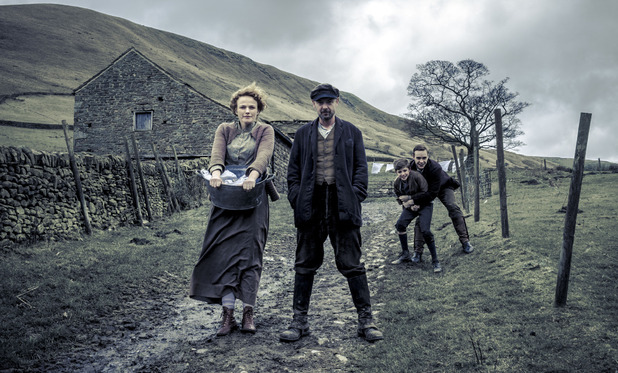Proof that television has changed a bit since 1972 came with an archive clip shown on BBC4 on Sunday. ‘My first guest:’ Michael Parkinson announced matter-of-factly on his Saturday-night chat show, ‘W. H. Auden.’ Auden then made his way gingerly down the stairs, lit a fag and began by discussing the failure of the poetry of the 1930s to effect political change. ‘Nothing I wrote,’ he told Parky, ‘postponed war for five seconds or prevented one Jew from being gassed.’
The clip appeared in Great Poets in their Own Words, the first of a two-part series combining archive film with talking heads to provide a useful if workmanlike history of 20th-century British poetry. In fact, given that Sunday’s episode covered the first half of the century, where the archives are pretty hit-and-miss – there’s no TV footage of Dylan Thomas, for example – the heads had quite a lot of talking to do. There were, however, several gems, among them an uncompromising performance from the Welsh poet and priest R.S. Thomas. When not defending the burning of English-owned holiday homes (‘I admire the people who are doing this because they prove that this nation is not entirely dead’), Thomas explained how his initial horror at the lives of the rural poor had gradually given way to sympathy and admiration.
Which brings us with spooky neatness to The Village (BBC1, Sunday) – a series that clearly wants us to experience the same transformation. Traditionally, rural Sunday-night dramas have been determinedly heart-warming affairs, featuring a cast of benign toffs, lovable eccentrics and twinkly yokels. The Village, by contrast, began last year with six defiantly bleak episodes, in which what R.S. Thomas called ‘the phlegm and spittle’ of impoverished rural life was represented by alcoholism, mental illness and suicide – as well as a fair amount of phlegm and spittle.
But judging by the viewing figures, this was rather too much for the audience, which may be why the advance publicity has suggested that the second series would lighten up a little. (After all, the show’s ambitious plan – perhaps unwisely disclosed by the writer Peter Moffat – is for 42 hour-long episodes to tell the history of 20th-century England through the prism of a single Derbyshire village.) Nonetheless, the result is still not something that could ever be confused with Lark Rise to Candleford.
Admittedly, the calf born dead in the opening scene was soon revived by John Middleton (John Simm), although it was then kicked out into the cold by the owner of the cowshed whose rent the Middletons could no longer afford. Admittedly too, John’s taste for drunken violence has been replaced by an unexpected uxoriousness. Even so, the biggest sign of hope seems to be that the Middletons are now fighting back against the forces of oppression.
There are, mind you, plenty to fight back against, especially now that the Allingham family up at the big house have been joined by Lord Kilmartin, newspaper owner, Tory fixer and (therefore) utter cad. The action began in 1923 when the aristos were seeking to re-establish the way of life that England had fought for in the trenches – including such customs as hunting a chosen member of the labouring classes (although Lord K preferred the term ‘peasant’) through their grounds with a large dog.
The honour of being the ‘hare’ fell to Bert Middleton (Tom Varey), now the family’s oldest son after Joe was shot at dawn for having shell shock. It was also a chase that handily allowed Kilmartin (Julian Sands) to show the full range of his villainy, as he kicked the stools from under seated old men and violently assaulted any social inferiors who got in his way. He even managed to find possibly the only black man in the Peak District of the 1920s, and to call him a nigger.
Naturally, Bert outwitted his pursuers, but naturally Lord K refused to pay the £5 he’d promised for evading capture. Meanwhile, the Middletons befriended the black man, who turned out to be unfailingly noble, and the local Labour candidate delivered a pithy author’s message for anyone who hadn’t yet got the point: ‘None of us will be free until we stop thinking of ourselves as victims and become masters – and mistresses – of our own destiny.’
In other words, The Village’s solution to winning back viewers is apparently not so much to lighten up as to become even less subtle, with any remaining shreds of nuance discarded in favour of straight melodrama. The twist, though, is that this may not be a bad idea. Certainly, for all its elements of self-parody, the first episode proved once again that if you can forget your critical principles (never too hard on a Sunday night) and if it’s done wholeheartedly enough, melodrama can still pack an undeniable punch.






Comments